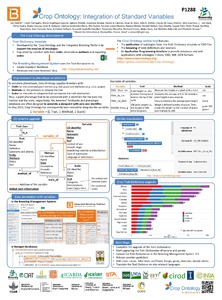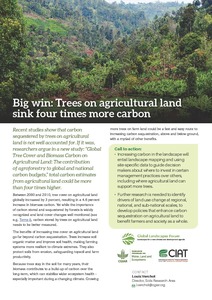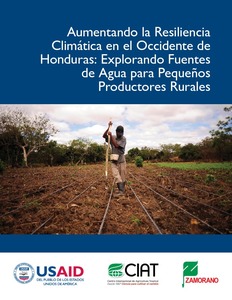Mission
To reduce hunger and poverty, and improve human nutrition in the tropics through research aimed at increasing the eco-efficiency of agriculture.
People
CIAT’s staff includes about 200 scientists. Supported by a wide array of donors, the Center collaborates with hundreds of partners to conduct high-quality research and translate the results into development impact. A Board of Trustees provides oversight of CIAT’s research and financial management.
Values
- Shared organizational ethic
- We respect each other, our partners, and the people who benefit from our work. We act with honesty, integrity, transparency, and environmental responsibility in all of our joint endeavors.
- Learning through partnerships
- We work efficiently and pragmatically together and with partners. Considering our diversity to be a key asset, we adapt readily to change and strive to improve our performance through continuous learning.
- Innovation for impact
- We develop innovative solutions to important challenges in tropical agriculture, resulting in major benefits for the people who support, participate in, and profit from our work.
Members:
Resources
Displaying 176 - 180 of 958Don't destroy the environment
This participatory video titled “Don’t destroy the environment” was filmed, produced, and directed by a group of 9 farmers and community members from Kunzokalla Village in Jirapa District, Upper West Region of Ghana.
Crop ontology: integration of standard variables
The Crop Ontology (CO, http://www.cropontology.org/) is a resource of the Integrated Breeding Platform (IBP, http://integratedbreeding.net/) providing breeders with crop specific terms for fieldbook edition and data annotation. Until Mai 2015, a plant phenotype was annotated with 3 CO identifiers for the trait, the method and the scale, respectively. Yet, breeders’ fieldbook and most phenotypic databases are designed to annotate a datapoint with only one identifier.
Crop ontology: integration of standard variables
Big win: Trees on agricultural land sink four times more carbon
Recent studies show that carbon
sequestered by trees on agricultural
land is not well accounted for. If it was,
researchers argue in a new study: “Global
Tree Cover and Biomass Carbon on
Agricultural Land: The contribution
of agroforestry to global and national
carbon budgets,” total carbon estimates
from agricultural land could be more
than four times higher.






